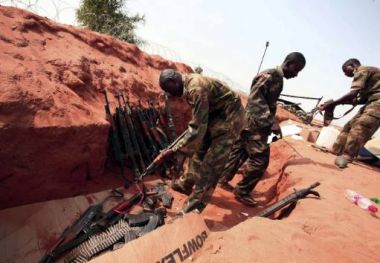New Arms Trade Treaty will protect human lives and human dignity, say churches

December 24 saw an international law come into effect to regulate the global trade in armaments and ammunition, including battle tanks, combat aircraft, and warships.
The newly ratified Arms Trade Treaty (ATT) will set new binding standards for the multibillion-dollar arms industry. The ATT seeks to reduce illicit arms trade and ban arms supplies if these promote war crimes or widespread human rights violations.
The World Council of Churches said it hoped the new treaty would help to save countless lives endangered by illegal arms transfer and improve the world's general state of security.
UN Secretary General Ban Ki-moon said the treaty would help prevent arms from falling into the hands of "warlords, human rights abusers, terrorists, and criminal organisations."
Though the ATT will not restrict the types and quantities of arms that countries may possess, it has been designed to encourage transparency and accountability relating to the cross-border transfer of conventional arms.
Ban said of the treaty, "Ultimately, it attests to our collective determination to reduce human suffering by preventing the transfer or diversion of weapons to areas afflicted by armed conflict and violence."
Rev Dr Olav Fykse Tveit, general secretary of the World Council of Churches, echoes Ban's sentiments.
Tveit said of the ATT's entry into force, "This new treaty gives states and societies a new instrument to protect human lives and human dignity, which are among God's great gifts to all people.
"Our prayer and expectation is that the ATT must become a treaty that no government and no arms dealer can ignore. The news reminds us almost daily of how many people need protection from armed violence, and it often involves illicit arms."
To date, the landmark ATT has been signed by 130 states and ratified by 60, including Britain, France, Germany, Italy, and Spain, five of the world's top arms producers. The United States, the world's largest arms exporter, signed the agreement in 2013 but its Senate still has to ratify the accord.
China, Russia, India, and Pakistan are also yet to sign the deal.











